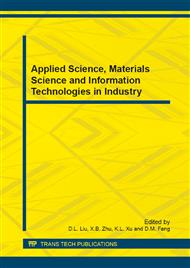p.3552
p.3556
p.3560
p.3564
p.3568
p.3572
p.3577
p.3581
p.3585
Air Conditioning Units Optimize Control Strategy Based on Multi-Objective Optimization Evolutionary Algorithms
Abstract:
In order to reduce the energy consumption of air conditioning systems, the best running model is adjusting the humiture according to actual needs of environment and groups.This paper take out a control strategy based on the Multi-objective Optimization Evolutionary Algorithms.With cntrol simulation, it achieve the energy saving effect in air conditioning units groups, proposed multi-objective optimization control strategy.
Info:
Periodical:
Pages:
3568-3571
Citation:
Online since:
February 2014
Authors:
Price:
Сopyright:
© 2014 Trans Tech Publications Ltd. All Rights Reserved
Share:
Citation:


